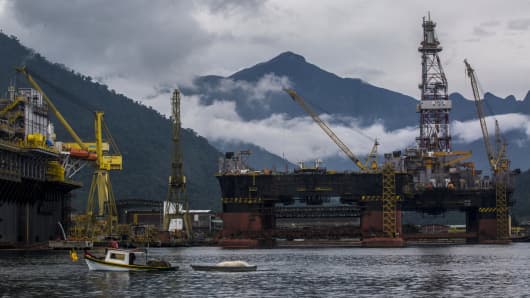Economists call it the resource curse. These days, Brazil seems doubly jinxed by the natural resources windfall that once propelled it into the ranks of the world's fastest growing economies but has now mired the government in a crippling corruption scandal.
The country's first woman president, Rousseff, a 68-year-old economist and former member of a Marxist guerrilla group, faces a six-month legal battle that many independent observers believe she will lose.
Regardless of whether Rousseff is convicted, the political climate will remain murky. Much of the rest of the government is mired in a bribery scandal involving the state-owned oil giant, Petrobras.
Once the main engine of growth in Latin America, Brazil now sees an economic reversal that is damaging the entire region's economy. In its latest forecast, the International Monetary Fund predicted that the drag on the region will continue for the next two years, as weak commodity prices and widespread inflation batter the prospects for growth.
The IMF's latest estimate sees the region's recession deepening, with the economy shrinking by half a percent in 2016, the second year of contraction. But much depends on how the political crisis plays out, the forecasters said.
The political chaos comes as falling oil and other commodity prices have cut deeply into Brazil's export-heavy economy. Now, political upheaval has thrown the country, and its faltering economy, into further chaos.
With this being the world's seventh-largest economy, the contraction will hurt global growth as well. Brazil's economy is shrinking even faster than fellow emerging market Russia, which has been wracked since the second half of 2014 by economic embargoes and plunging oil prices. Its GDP lags far behind the rest of the "BRICs" — the group that is made up of Brazil, Russia, India and China.





